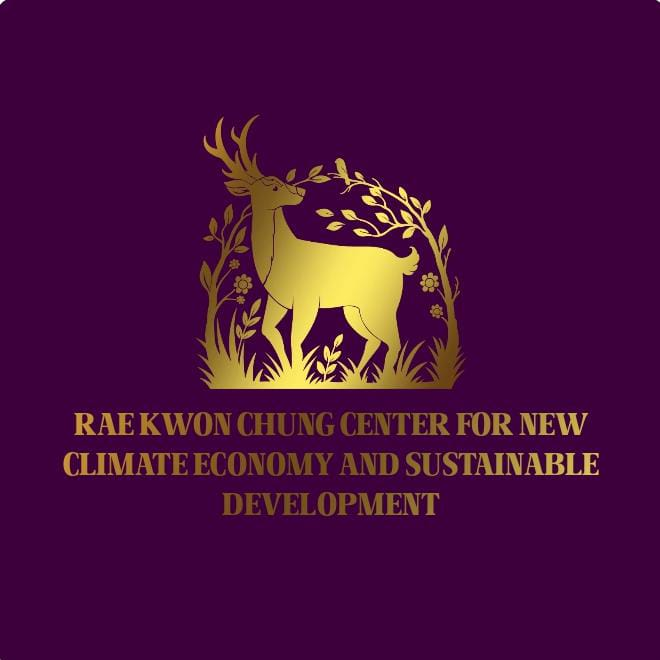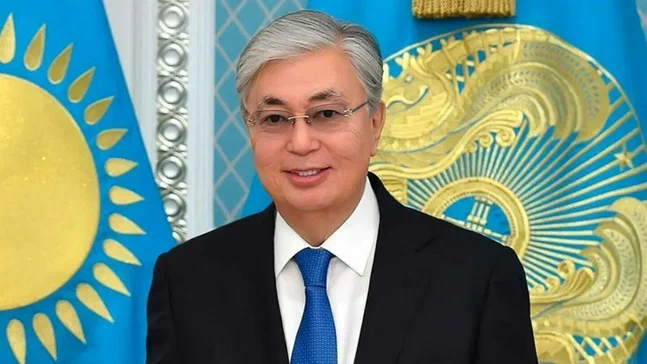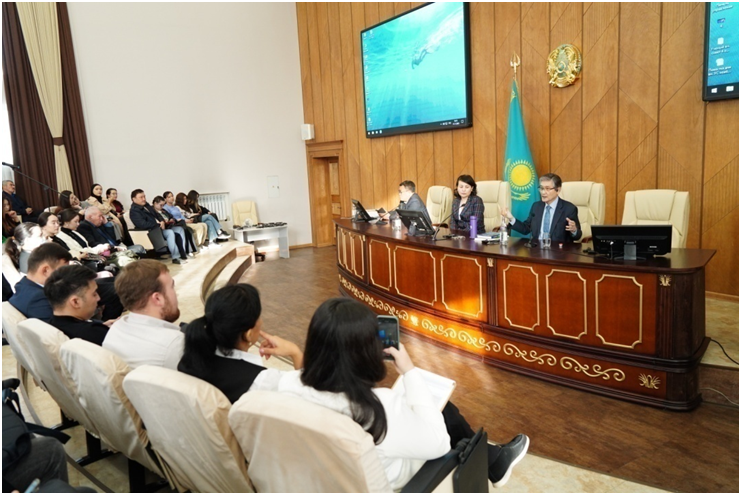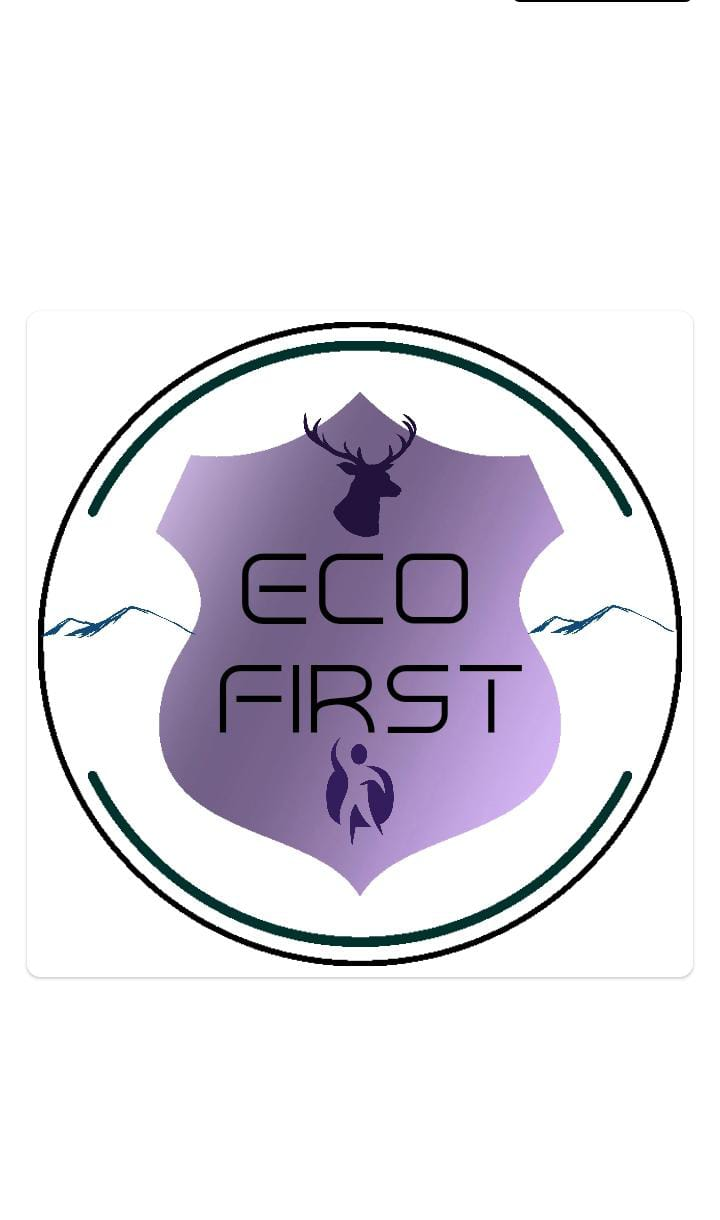The role of the SKU named after M. Auezov in promoting the green economy
SKU named after M. Auezov actively promotes the green economy in Kazakhstan. He trains specialists in the field of ecology and sustainable development, conducts research on improving energy efficiency and introducing clean technologies. The University also participates in environmental initiatives and projects, develops environmental awareness among students and supports the use of renewable energy sources, which contributes to the sustainable future of the region. Thus, the SKU named after M. Auezov plays an important role in promoting the green economy through scientific research, practical activities and cooperation with various organizations.
SKU named after M. Auezov forms cooperation in the field of green economy and sustainable development
As an important step towards achieving its climate goals, SKU named after M. Auezov announced the creation of the Rae Kwon Chung Center for New Climate Economics and Sustainable Development, the first institute in Central Asia and the CIS to introduce a new model of economic development based on the principles of sustainable growth, green technologies and reducing the impact of climate change on the environment. This innovative cooperation unites institutions of higher education, healthcare, culture, state and local government organizations under the leadership
of SKU named after M. Auezov
Kazakhstan plans to increase the share of renewable energy sources in the energy mix to 15% by 2030
The environmental agenda occupies one of the key places in the issues of sustainable development of the economy of Kazakhstan. Thus, by 2030, the country plans to increase the share of renewable energy sources in its energy balance from the current 4.5% to 15%.
- About the center
- The mission of the center
- Chairman of the Center
- Lectures by Rae Kwon Chung
- The Center 's projects
- The UN Sustainable Development Goals
- UN goals with the University
- Kazakhstan's transition to a green economy: an overview report
- THE CONCEPT FOR THE IMPLEMENTATION OF THE 17 UN SUSTAINABLE DEVELOPMENT GOALS Of SKU named after M. AUEZOV
- Action plan of the Concept for the implementation of the 17 UN Sustainable Development Goals at the SKU named after M. Auezov for 2025-2029
- SDG University Strategy
- The University 's SD policies
- Library
- Center for Inclusive Education
- Calendar of SDG events
- EcoFirst Ecological Club
- News
- Application form
About center
|
Rae Kwon Chung Center for New Climate Economy and Sustainable Development is the first institute in Central Asia and the CIS to introduce a new model of economic development based on the principles of sustainable growth, green technologies and reducing the impact of climate change on the environment.
The decision to open this center was made on October 31, 2022 with in the framework of a signed memorandum between the Chairman of the Board—Rector of the NAO M.Auezov South Kazakhstan University Kozhamzharova Daria Perneshovna and Nobel Prize laureate, Advisor to the UN Secretary—General on Climate Change, Professor Rae Kwon Chung during the III Nobel Festival. The purpose of the center:
Research and Educational Institute. Introduction of new principles of economic development:
Reducing the impact of climate change on the environment.
In order to understand and implement sustainable lifestyle thinking, activities are underway to introduce "green incentives" and develop research projects for universities, through influencing behavior patterns and decision-making. This is relevant because Universities play a key role in shaping the leaders of tomorrow. At the moment, students and staff of Auezov University have expressed interest in becoming sustainable and promoting a sustainable lifestyle on and off campus. "The Center for a New Climate Economy and Sustainable Development named after Rae Kwon Chung works together with the growing demand for additional knowledge and the development of opportunities for a sustainable lifestyle and related fields of knowledge, nutrition, mobility, housing and recreation (including consumer goods and tourism). |

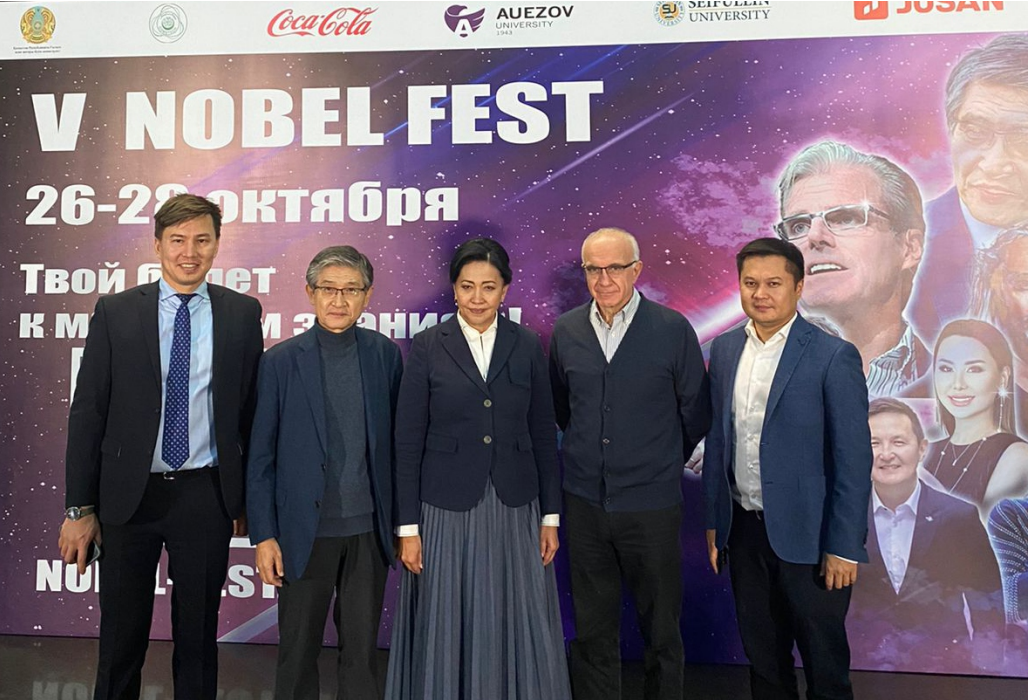
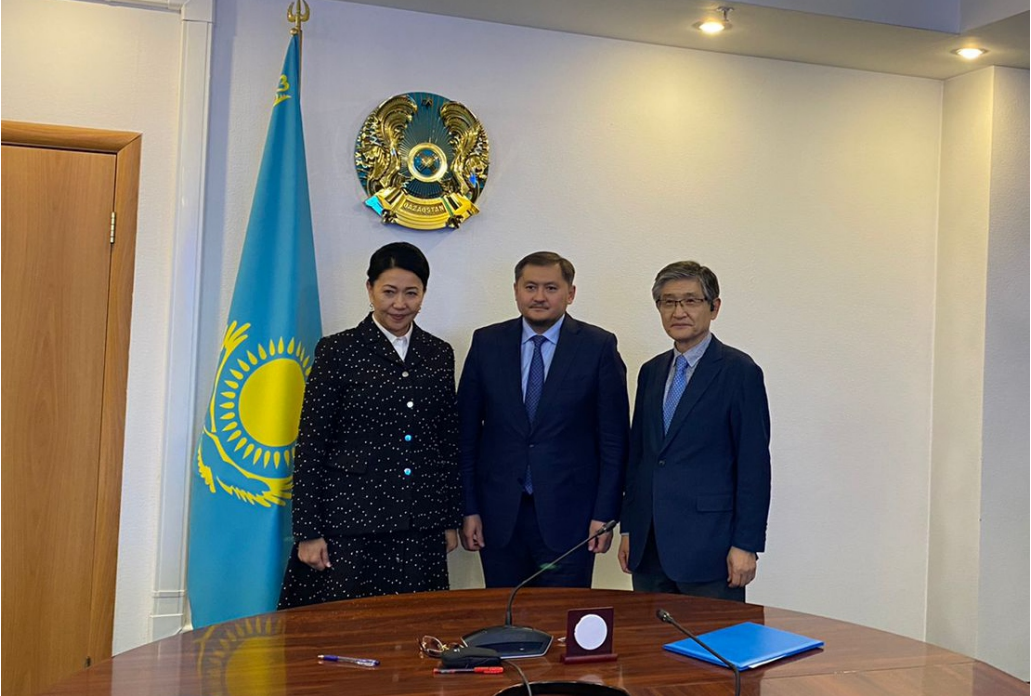
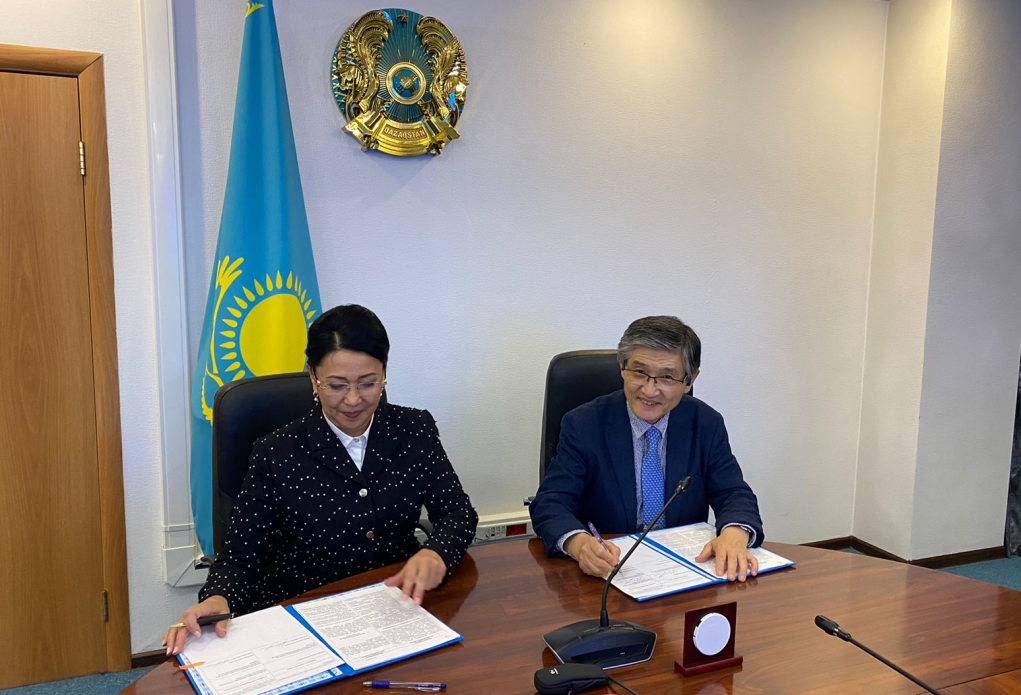
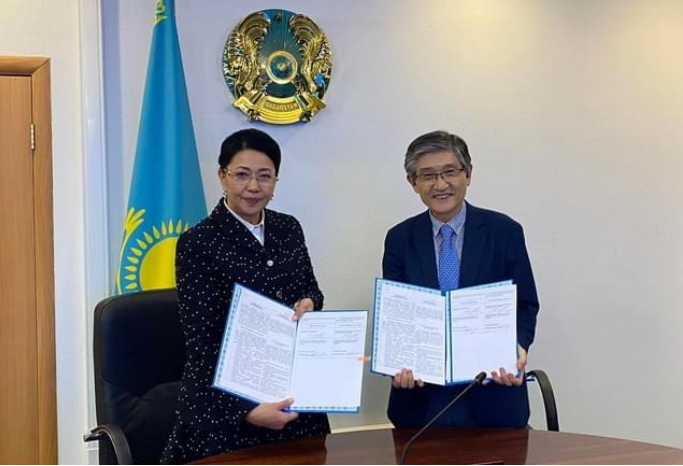

RAE KWON CHUNG CENTER FOR NEW CLIMATE ECONOMY AND SUSTAINABLE DEVELOPMENT

Tokaev Kasym-Zhomart Kemelevich President of the Republic of Kazakhstan
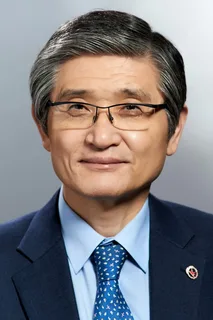
Lectures by Rae Kwon Chung
|
The professor gives lectures to students of Auezov University on the discipline "Climate Change and Green Economy", where he touches on such important topics as the economics of hydrogen, geothermal and thermonuclear energy, renewable energy sources, fuel cells, energy storage systems, electric vehicles, CO2 capture systems, climate change -causes, consequences and solutions. |
|
He is also a scientific consultant to a number of undergraduates and doctoral students of the departments: "Ecology", "Economics" and "Electric Power Industry and non-traditional energy systems". For example, at the suggestion of Professor RaeKwon Chung ta at the Department of "Energy and Non-traditional Energy Systems", undergraduate student Dosanov Ilyas Ashimovich was given the topic of a master's thesis on "Research and development of an integrated renewable energy (RES) system using supergrids to achieve sustainable and efficient power generation of 100 MW under climate change conditions." |
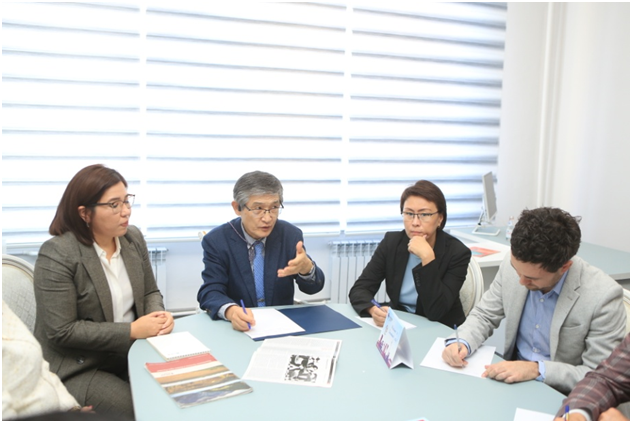
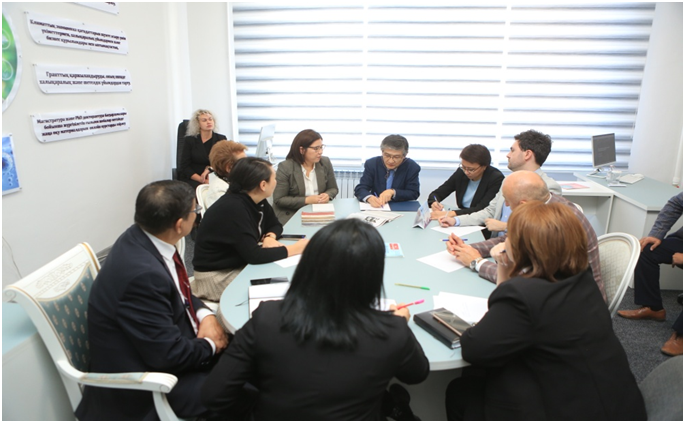
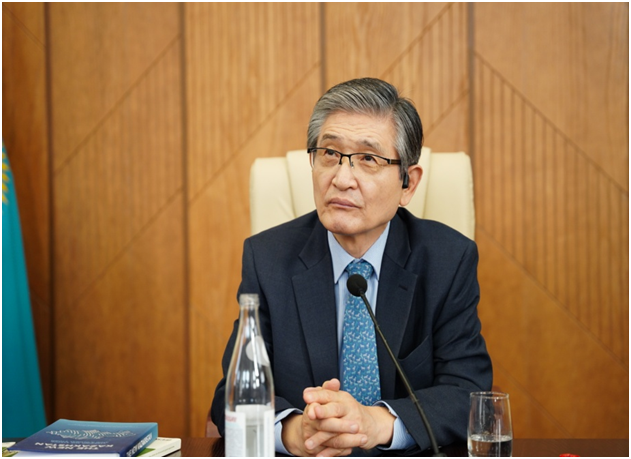


Consultant of Master's and doctoral dissertation
The Green Cotton
The Green Cotton Project is the flagship brand of the eco-friendly movement, representing the vanguard of the fourth agricultural revolution based on smart farm technology and SAF (smart Aquaponic Farm) The Green Cotton project will be not only organic, but also environmentally friendly products that do not contain carbon dioxide emissions, due to the use of renewable energy sources for the operation of Smart Aquaponics FarmSmart agriculture (Smart Aquaponics Farm)—It is a management concept aimed at providing the agricultural industry with the infrastructure to use advanced technologies, including big data, the cloud and the Internet of Things (IoT), for tracking, monitoring, automation and analysis of operations. Smart agriculture allows farmers to collect data on the condition of crops, soil quality and other key indicators in real time. These data can be analyzed to optimize resources such as fertilizers, water and pesticides, which will lead to increased crop yields.
Aquaponics
Aquaponics is a sustainable farming method that combines aquaculture (growing aquatic organisms such as fish) with hydroponics (growing plants in nutrient—rich water without soil). This combination creates biological processes that occur in both systems, creating a closed environment in which fish and plants thrive together. Aquaponics is considered as a highly effective solution for agriculture, which solves common problems of agriculture. Using less water compared to traditional agriculture, By reducing the need for synthetic fertilizers and minimizing waste, aquaponics opens up prospects for food production without harming the environment.
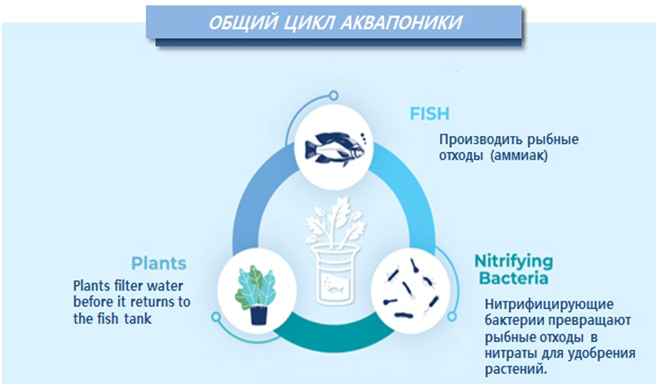


Waste to Energy project for environmental climate
|
Minimal air pollution, no risk of dioxins, no need for ash burial, 20% higher energy efficiency, less land required, more than 50% lower operating costs compared to conventional incinerators of the stoker type
|


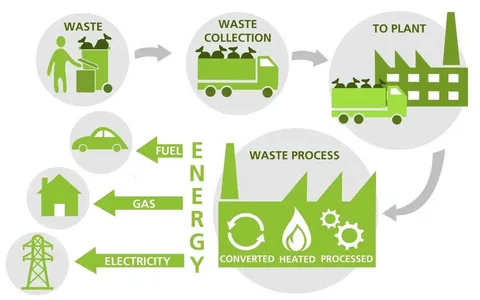
University Strategy UN goals
The principles shaping the social, economic and environmental aspects of sustainable development of the University
▪ The principle of good faith and openness to information. The University strives to raise awareness among all stakeholders about all aspects of sustainable development activities. To ensure the reliability, content and relevance of information, the University prepares financial and non-financial statements, the reliability of which is established by independent auditors.
▪ The principle of development and continuous improvement. The University ensures continuous improvement of internal processes to improve the level of organization of activities in the field of sustainable development. To implement this principle, the University regularly evaluates the achievements and effectiveness of processes, actively works with consulting and rating agencies that provide a comparative analysis of activities in the field of sustainable development.
▪ The principle of compliance with the norms of law and obligations assumed. The University carries out its activities in strict accordance with the norms of current legislation, applicable norms of international law and fulfills its obligations.
▪ The principle of respect for human rights. The University recognizes the inviolability of human rights and does not allow any form of violation of them. The University promotes diversity, ensures equal opportunities, opposes child and forced labor, and protects personal data and other fundamental human rights.
▪ The principle of respect for the interests of stakeholders. Relationships with stakeholders are built on the basis of mutual interest in the results of such interaction. The University has flexibility in internal processes and strives to maintain a balance of interests and expectations of all stakeholders in its activities.
The principle of ethics. In the process of interaction with all interested parties, the University strictly follows the rules of corporate ethics, including those enshrined in the Code of Corporate Ethics of the M.Auezov National Research University.


Information resources of the library
Resources of the information and educational center
To provide the studied disciplines with textbooks and teaching aids, the MCC is systematically updated with printed and electronic types of documents: textbooks and educational and methodological complexes, scientific publications, official regulatory documents, reference and bibliographic, periodicals and electronic media. Foreign databases Web of Science (WOS), EBS "IPR SMART", "WILEY", "SpringerLink", "Scopus", "Envoy", "ScienceDirect" to assist in the research and educational processes of the university online; Kazakh databases "RMEB", "Aknurpress", "ZAN", Available in the databases "literature", "book I", "History of Kazakhstan". Information resources http://lib.ukgu.kz can be used by following the link. Provides a full-text database of "Alma Mater" 24/7 to bring to students scientific papers and publications of educational scientists named after M. Auezoa. http://articles.ukgu.kz/ru/pps
Readers are provided with bibliographic records of printed books of the IRBIS-64 electronic catalog, built in accordance with GOST 7.1-2003 standard.
Books
|
Hinrichs B. Sustainability as a corporate strategy. Roadmap for sustainable Economic Development and innovation / B. Hinrichs. - Freiburg. : Haufe Group, 2020. - 287 p. (W 65/H67-540711) Rankers With. Sustainable development Women create the future / K. Rankers, N. Kammerlander. - Frankfurt am Main : Frankfurter Allgemeine Buch, 2021 - 302 p. (W 65/R20-607756) Dreyer O.K. Ecology and sustainable development : A textbook / O. K. Dreyer, V. A. Los. - M. : Publishing House of URAO, 1997. - 224 p. (Cipher 57/D73-032687) Ibraeva A.N. Sustainable development and independence of the country. Food, energy, transport: assessment of security and economic accessibility : monograph / A. N. Ibraeva. - Astana : NGO "IEE", 2016. (Code 65.9(5K)/I 15-187866) Mafenin N.N. Sustainable development of mankind : A textbook for students. universities studying in the specialty. "Ecology", "Geoecology", "Nature management" / N. N. Mafenin ; Lomonosov Moscow State University. - M. : Publishing House of Moscow State University, 2006. - 624 p. - (Classical university textbook). (Cipher 20.1/M 35-490175)) Tazhibaeva T.L. Sustainable development: ecology and energy : a textbook / T. L. Tazhibaeva, V. G. Salnikov, S. E. Polyakova. - 2nd ed., reprint. and additional - Almaty : Kazakh University, 2018. - 344 p. (Code 28.081/T 13-524474) Environmental problems and sustainable development of the Republic of Kazakhstan : studies of students, undergraduates and graduates / editor-in-chief A.V. Sidorovich. - Astana : Kazakhstan branch of Lomonosov Moscow State University, 2011. 180 p. (Code 26.8/E 40-795900) Ecology and sustainable development : a collection of lectures for students of humanities and technical specialties / A. B. Kaldybaev [et al.]. - Shymkent : SKSU, 2016. - 236 p. (Cipher 28.081/K 17-569869) Aydosov A.H. The social structure of the Aral Sea ecology and the processes of sustainable development of the Aral Sea basin : a monograph / A. H. Aydosov ; Kyzylorda State University named after Korkyt Ata. - Almaty : NITS Gylym, 2002.- 210 p. (Cipher 60.55/A 37-847724) |
Musina A.S. Ecology and sustainable development : textbook for university students / A. S. Musina. - Karaganda : Medet Group LLP, 2016. - 235 p. (Code 28.08/M 91-109074) Nurasheva K.K. The regional system of Kazakhstan in conditions of sustainable development: theory, methodology and mechanism of formation : Monograph / K. K. Nurasheva. Shymkent : Nurly Beine, 2008.- 408 p. (Cipher 65.9(5K)/N 90-708759) Sabdenova Zh.O. Collection of lectures on the discipline "Corporate governance and sustainable development": for undergraduates of specialty 6M052000 - "Business Administration" / Zh. O. Sabdenova. Shymkent : SKSU, 2016. 76 p. (Cipher 65/S 12-947949) Sartaeva R.S. Human ecology, new ontology and sustainable development of Kazakhstan : Monograph / R. S. Sartaeva ; edited by Z.K. Shaukenova; Institute of Philosophy, Political Science and Religious Studies of the Committee of Science of the Ministry of Education and Science of the Republic of Kazakhstan. - Almaty : IFPR Book of the Ministry of Education and Science of the Republic of Kazakhstan, 2012. - 207 p. (Code 28.081/S 20-321739) Articles Shakulikova G.T. The role of the "green economy" in the sustainable development of the ecological and economic system of Kazakhstan / G. T. Shakulikova, S. M. Akhmetov // OIL AND GAS. - 2021. - № 6 (126). - P. 13 Nikonorova E.V. Sustainable development of cultural and human capital: the role of libraries and its assessment / E. V. Nikonorova // LIBRARIANSHIP. - 2017. - vol. 66, No. 1. - p. 19 Lukanina M.V. Continuing education and sustainable development goals: retraining program "Translator in the field of professional communication" / M. V. Lukanina, L. K. Salieva // ALMA MATER. - 2022. - No. 5. - p. 91 |
Inclusive Service Center
The ways of creating conditions for students in need of special education are considered. The library's website has been adapted to the work of visually impaired users, a special NVDA program with audio service has been introduced, special classrooms with two workplaces for people with disabilities are equipped in educational buildings. The SARA™CE 2 machine is offered for scanning and reading the book.
The University's map of inclusive education

-
Organizing volunteer actions to clean up garbage in public places.
-
Conducting information campaigns and events to raise awareness of the importance of ecology and nature.
-
Support and promote sustainable practices such as waste management and recycling, energy conservation and the use of renewable energy sources.
-
Creation and participation in gardening projects, landscaping of the city, planting trees and flowers.
-
Organization of excursions and ecological hikes for cognitive experience and strengthening of connection with nature.
-
Conducting classes and educational activities with children and youth to instill in them the value and necessity of environmental protection.
-
Work with local authorities and organizations to promote environmental policies and develop sustainable strategies.
-
Cooperation with other Eco Clubs and environmental organizations to share experiences and joint projects.
Professor Chung with the students of the EcoFirst Club

Presentation of certificates

160012, Shymkent City, Tauke khan avenue, 5
Chancellery
(8-725-2) 21-01-41
canselyarya@mail.ru
info@auezov.edu.kz





